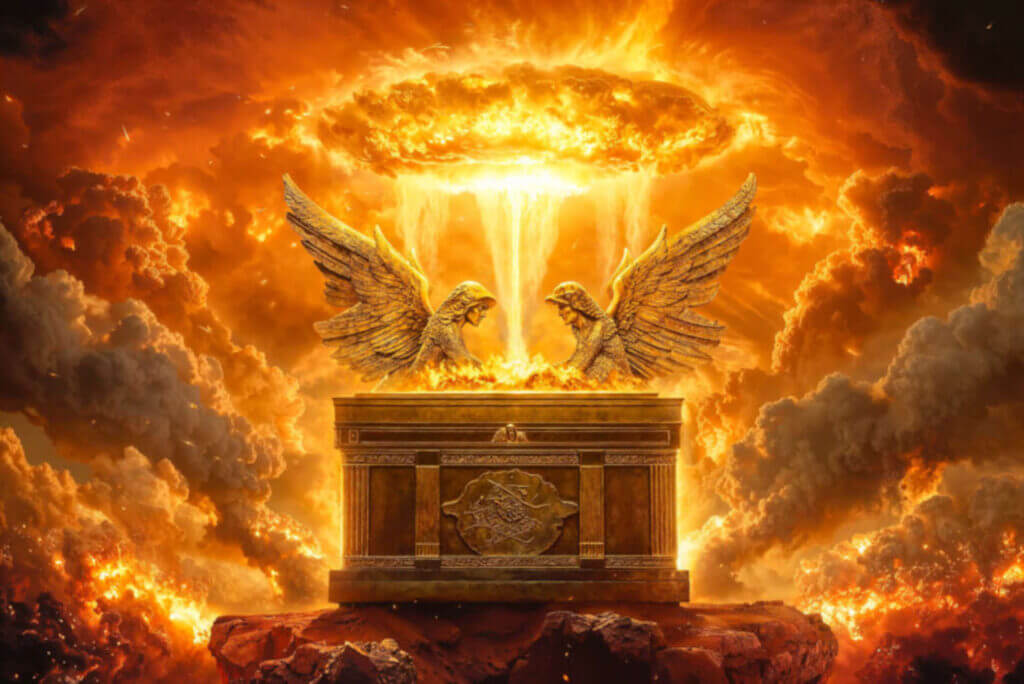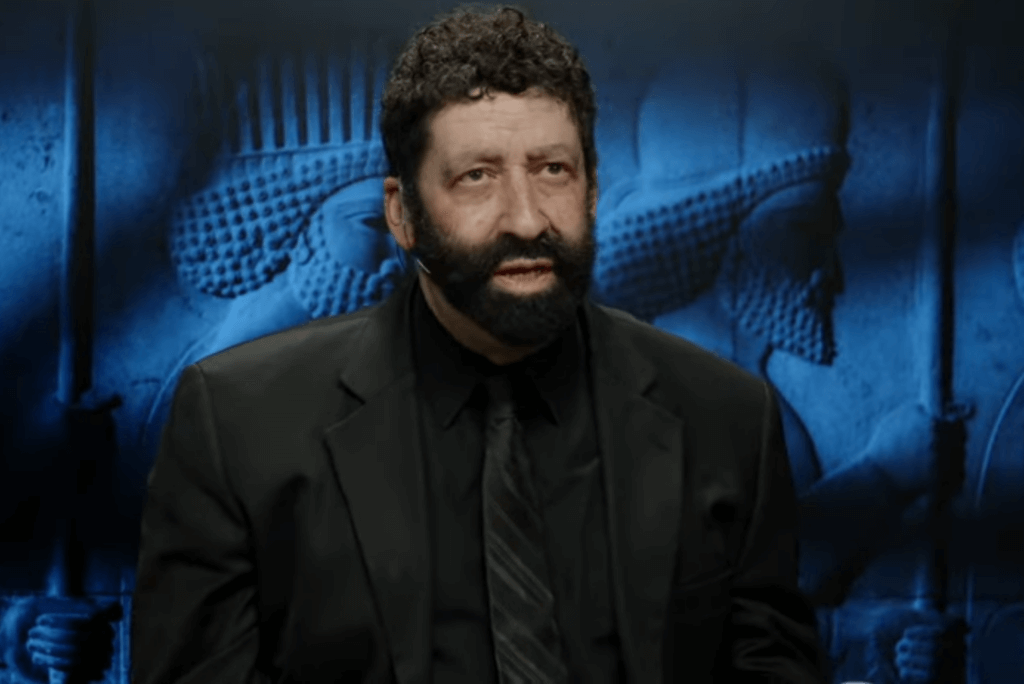Israel: The word means “fighter of God” or “one who struggles with God.” It has a history that goes as far back as the 13th century B.C. when the Egyptian pharaoh Merneptah inscribed the name on stone.
Jacob, the grandson of the patriarch Abraham, was renamed Israel after his struggle with God, an angel or a man, as recorded in the biblical book of Genesis. Jacob refused to surrender to his rival; after a prolonged duration of time, the rival declared in essence, “You have striven with me and prevailed. From this time forward, you shall be known not as Jacob but as Israel.” Late in his life, Israel entered Egypt where he remained until his death.
Jacob travelled to Egypt partially because of a famine in the land of Canaan, later known as Israel and partially because his son had impressed the Pharaoh and had assumed a very high and influential position there. Other Israelites followed and remained under the rule of the Pharaohs for more than four hundred years. Gradually, the Israelis grew in number until the Egyptian rulers became nervous and one of the Pharaohs decreed that the Israelis should be enslaved.
The Israelis worked as slaves for many years, but the Pharaoh gradually expressed dissatisfaction with them. He feared they might insurrect and commanded that every first-born Israeli male child be drowned in the river. Israeli leaders complained but the Pharoah refused to heed their pleas.
The Pharoah’s stubbornness resulted in numerous plagues on Egypt until the Pharoah finally released the Israelis from their bondage. Under the leadership of the prophet Moses and his brother Aaron, the Israelis left Egypt, wandered in the wilderness/desert for some forty years and finally arrived in the land of Canaan.
The Israelis initially settled in the hill country in southern Canaan but soon began to infiltrate other parts of the area. The Canaanites objected to the infiltration and conflicts ensued. The Israelis won most of the battles and took over much of the land. Once they overpowered the Canaanites, they divided the regions among their twelve tribes. In the 10th century B.C., the area was divided into two kingdoms: Israel in the north and Judah in the south.
According to the online publication “History” (May 11, 2021), the southern kingdom of Judah was conquered and ruled by various groups for several centuries. In the early 16th century A.D., the Ottoman Empire conquered the region and ruled until the British replaced the Ottomans in A.D. 1917 under the British Mandate for Palestine.
In 1917, British Foreign Secretary Arthur James Balfour introduced the Balfour Declaration in support of the establishment of a Jewish homeland in Palestine. The League of Nations approved the declaration in 1922. The United States supported the declaration, but President Franklin D. Roosevelt questioned the declaration and promised the Arabs in 1945 that the United States would not interfere in the area without consulting both the Jews and the Arabs.
Mr. Roosevelt’s successor, President Harry S. Truman, however, formed a special cabinet committee to discuss the future of Palestine and, in 1946, declared his support for the establishment of a Jewish state. The U.S. Department of State recommended the creation of a United Nations trusteeship rather the creation of a country. Mr. Truman ultimately decided in favor of a country and recognized the nation of Israel, thereby beginning the decades of American support for Israel.
Mr. Truman’s support for the creation of Israel was based, at least in part, on his conviction that the Jews had been oppressed during the Holocaust and needed a homeland. Further, he served as vice president for one year under Mr. Roosevelt and assumed the presidency a few months later in 1945 when Mr. Roosevelt died. Mr. Truman ran for a full four-year term in 1948. He hearkened to voters who favored the creation of Israel and disregarded the opinions of voters who argued against the creation of the Jewish nation. He became the first world leader to recognize the newly formed country of Israel and was elected for a full four-year term as president.
Since 1948, U.S.-Israel relations have at times been clouded, but the U.S. has refused to withdraw its overall support for Israel. America designated Israel one of the two non-NATO allies in the Middle East in 1987; the other ally being Egypt. Both nations still hold that designation. Relations with Israel remain a very significant factor in the overall foreign policy of the United States in the Middle East.
Mr. Truman’s decision to support the establishment of Israel in 1948 enjoyed the underpinning of Christian evangelicals and members of American Zionism. The evangelical backing was and remains rooted in the belief that the establishment of Israel attests to the prophecy of Christ’s Second Coming and the reality that the Jews are God’s chosen people. Zionism claimed many followers, and apparently still does. The movement contends that Jews constitutes a nation whose survival requires its return to the ancestral home of the Jews in the land of Israel.
The United States has been a very strong supporter of Israel since the 1960s. The U.S. government and private organizations provides millions of dollars in aid annually, and Israel benefits from $8 billion in loan guarantees. The U.S. supplied $3.8 billion in military aid in 2019. The U.S. government consistently defends Israel on the United Nations Security Council. Many people consider the United States Israel’s best friend. Then-President Donald Trump moved the U.S. Embassy from Tel Aviv to Jerusalem on May 14, 2018 in support of the Jews in Israel.
A Pew Research Center survey conducted in 2019, titled “U.S. Public Has Favorable View of Israel’s People. But Is Less Positive Toward Its Government,” and revealed that 64% of Americans favored the Israeli people but only 40% favored the Israeli government. Numbers of Americans seem to be warming to Palestinians, particularly American youth and avid Democrats.
The United States recognized Israel as a state in 1948 before any other government gave recognition. The U.S. made a bold move in May 2018, moving its embassy to Jerusalem and recognizing Jerusalem as the capital of Israel. Americans and Israelis share a commitment to democracy and security. Despite infrequent differences and possible misunderstandings, the two countries appear to be united. {eoa}
Read articles like this one and other Spirit-led content in our new platform, CHARISMA PLUS.
See an error in this article?
To contact us or to submit an article






















